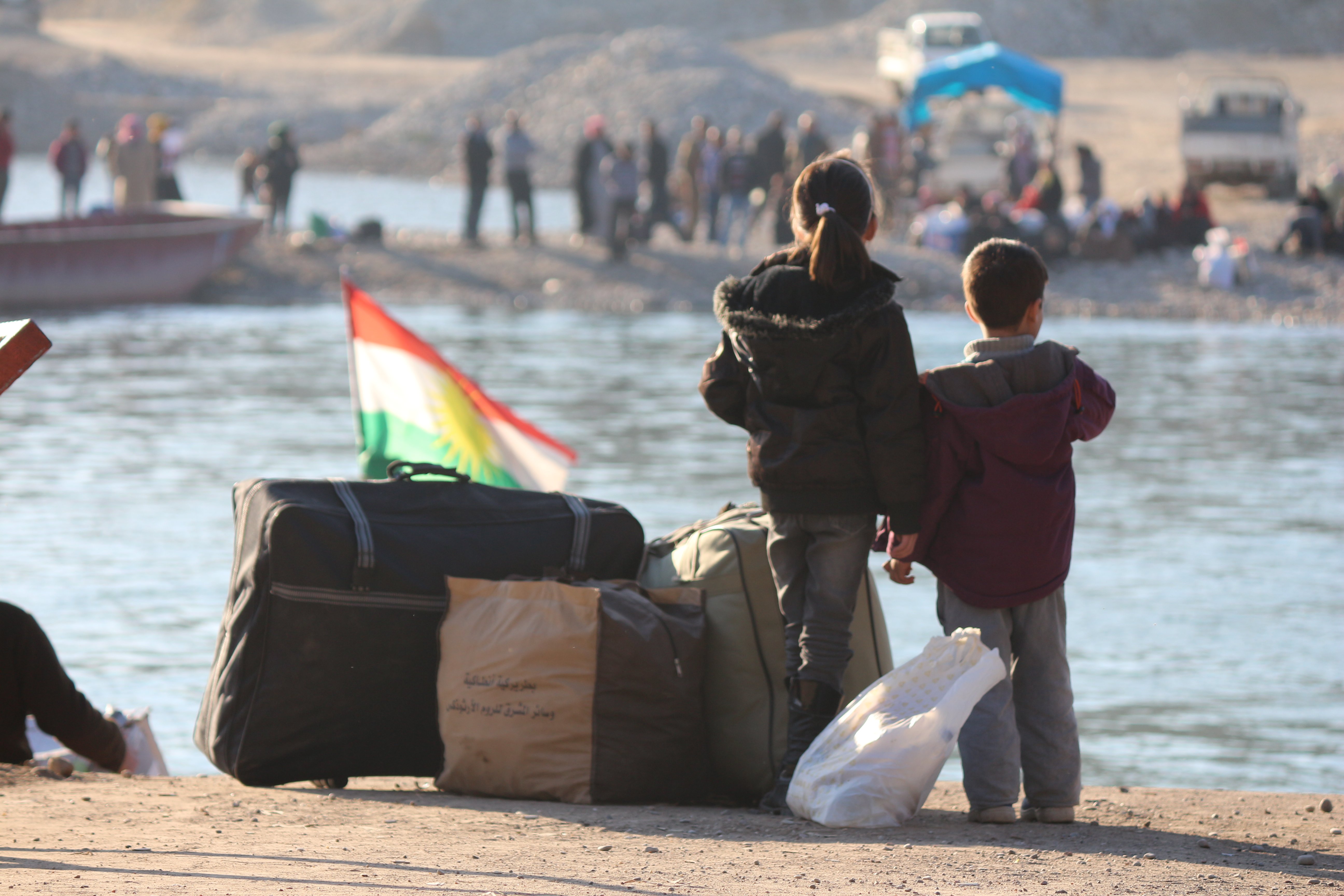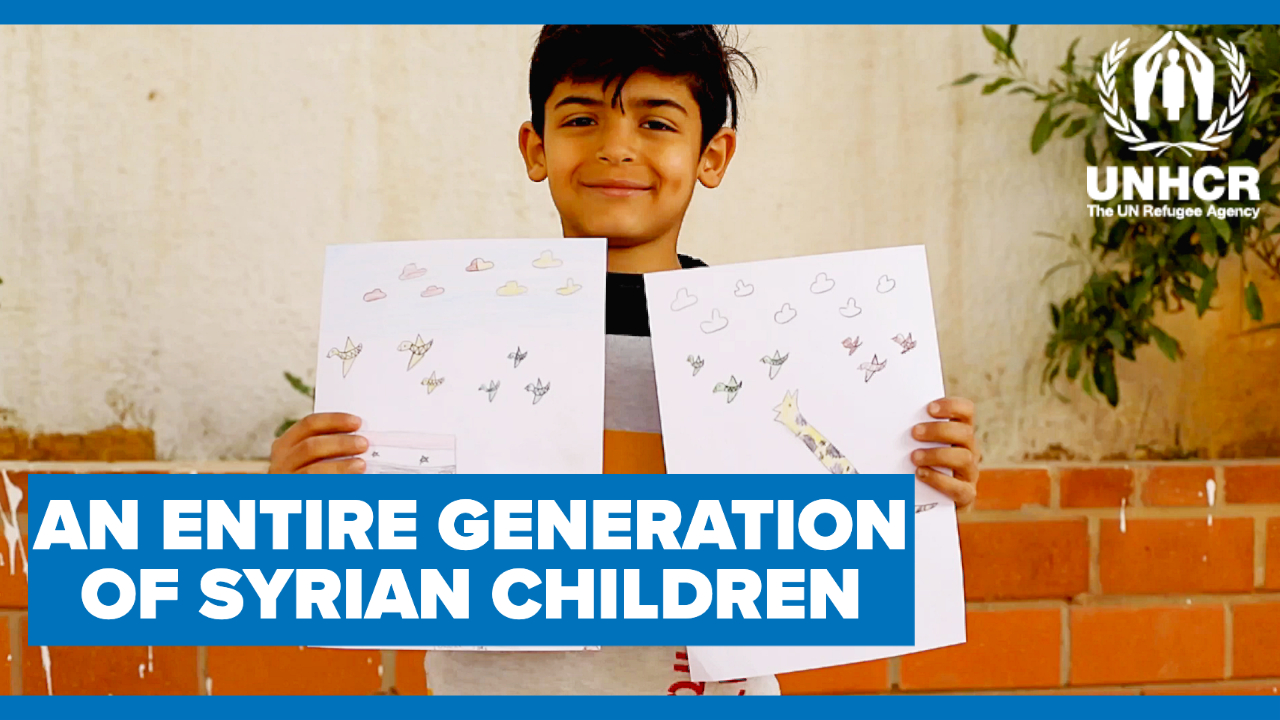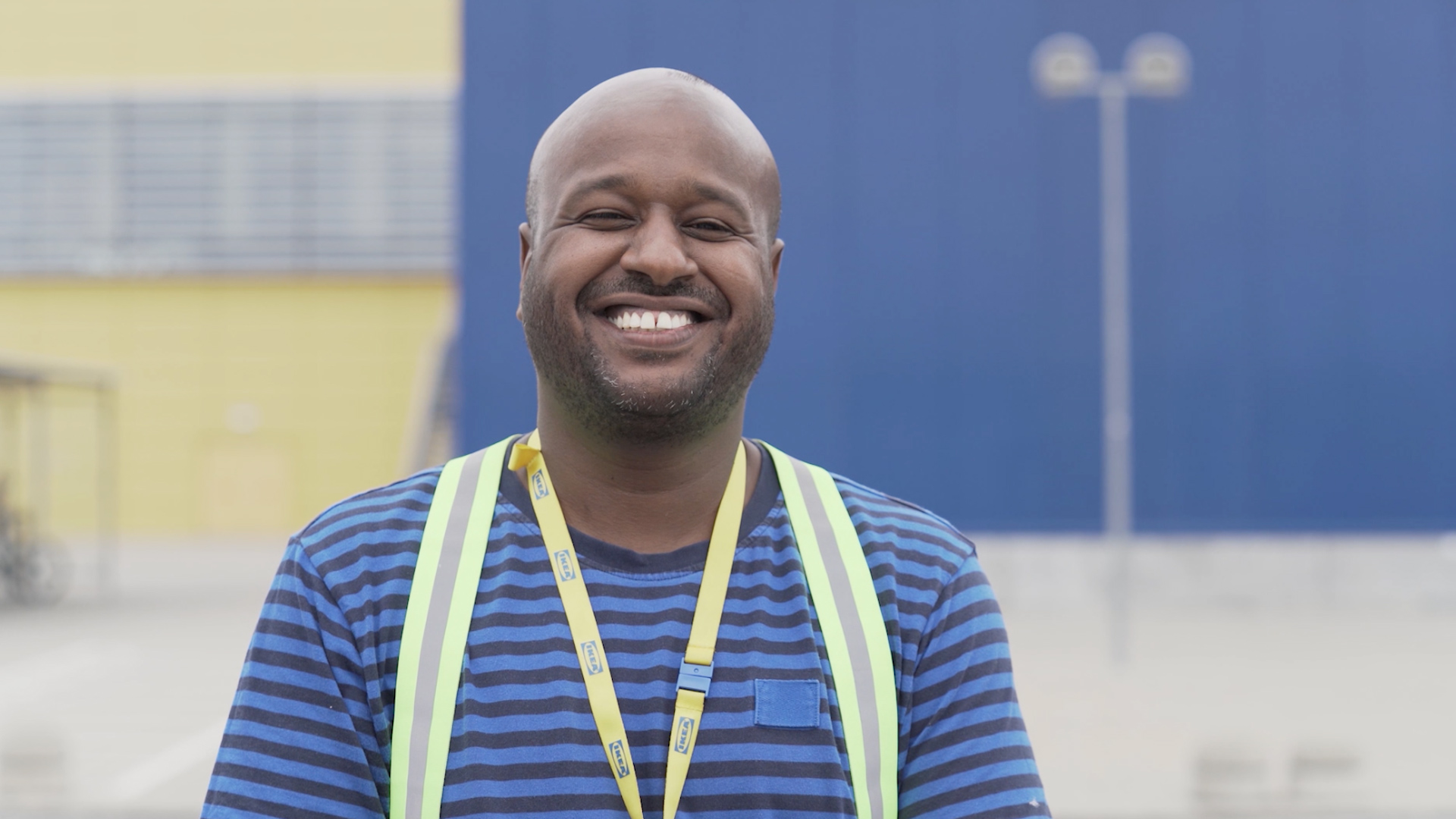UNHCR aid reaches displaced from Fallujah and Ramadi
UNHCR aid reaches displaced from Fallujah and Ramadi

BAGHDAD, Iraq, January 14 (UNHCR) - The UN refugee agency said on Tuesday that it has been able to deliver aid over the past week to some of the estimated 70,000 people displaced by fighting and insecurity in central Iraq's Anbar province.
"Aid from the UN and partner agencies has been reaching some of the affected communities since January 8, and yesterday a further 12 trucks of UNHCR relief reached neighbourhoods around Fallujah, carrying non-food aid," spokesman Adrian Edwards said, adding that the International Rescue Committee was conducting the distribution for UNHCR.
"At present, insecurity and access difficulties are still hampering the overall effort. The UN is advocating with the government of Iraq to ensure access to displaced persons and safe passage of humanitarian aid," he added.
The Iraqi government has lost territory in central Iraq since clashes erupted in late December, displacing some 70,000 people in Anbar, according to Iraq's Ministry of Displacement and Migration. Most of the displaced are located in areas around the cities of Fallujah and Ramadi, but authorities in other central and northern provinces report the arrival of hundreds of displaced families there too.
"The displacement in central Iraq is impacting other regions of the country. Authorities in the northern Kurdistan Region of Iraq report that some 14,000 people have arrived in the last two weeks from Anbar. UNHCR is coordinating with the regional government to establish their locations and assess immediate needs," Edwards said.
Although the displaced are said to be mainly accommodated with family or staying in hotels, UNHCR is coming across families living in abandoned houses and half-built homes that are in urgent need of assistance. At the request of the authorities in the Kurdistan region of Iraq, UNHCR and its partners are refurbishing a transit centre at Baharka to accommodate more displaced people.
Meanwhile, the UN High Commissioner António Guterres accompanied UN Secretary-General Ban Ki-moon on a visit Tuesday to a refugee camp in northern Iraq hosting 13,000 Syrian refugees. Valerie Amos, the UN's emergency relief coordinator, also joined the visit to Kawergosk Refugee Camp near Erbil to show solidarity with the refugees.
Ban Ki-moon, who will attend a pledging conference in Kuwait tomorrow and chair an international peace conference on Syria next week in Geneva, said he was there to listen to the concerns and aspirations of the refugees. "I am particularly saddened to see so many young children and women and vulnerable groups of people who suffer from this man-made tragedy," he added, before thanking the Kurdistan Regional Government for hosting tens of thousands of refugees from Syria.
The Syrians in the camp crossed into northern in August 2013, amid an influx of some 60,000 people before the border was closed in mid-September.
Earlier this month the Peshkabour crossing was reopened. Since then some 5,000 people have crossed, and several hundred now arrive every day. Of these only around 900 have registered with UNHCR.
These people are transferred to a reception centre where they are given basic assistance before being moved to the Gawilan refugee camp by the International Organization for Migration. Other recent arrivals have arranged their own transportation and are apparently going to Erbil and Suleimaniya to join families, while some proceed to Zakho and Dohuk.
"Authorities in the Kurdistan Region of Iraq have told us that they are adopting a flexible approach to the arrivals and those Syrians who do not want to stay as refugees can remain for up to seven days or approach the local authorities to legalize longer-term stay," said spokesman Edwards.
Only 30 per cent of the Syrian refugees in the Kurdistan Region of Iraq stay in camps, while the rest live in host communities. Currently Iraq hosts some 250,000 Syrians, of whom some 212,000 are registered as refugees.







